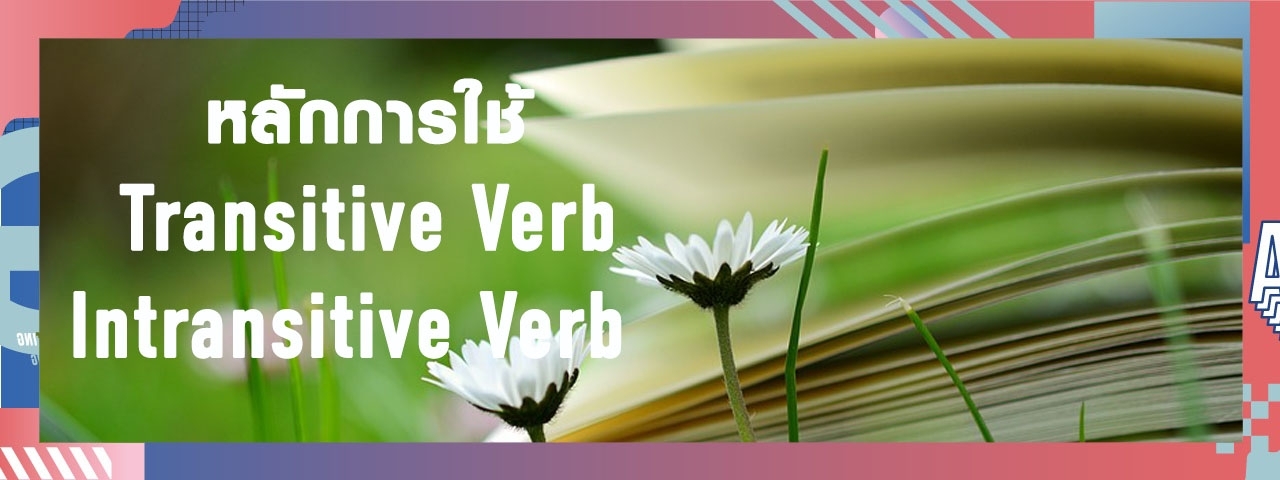

 213,954 Views
213,954 ViewsTransitive Verbs (VT) เป็นคำกริยาที่ต้องการกรรมตรง (Direct Object) มารองรับเสมอ เช่น
I eat bread and drink coffee.
eat, drink เป็น Transitive Verbs, bread เป็น Direct Object ของ eat และ coffee เป็น Direct Object ของ drink
I bought a new phone.
bought เป็น Transitive Verbs, new phone เป็น Direct Object ของ bought
ตัวอย่าง Transitive Verbs ที่ต้องตามด้วยกรรมตรง (Direct Object)
annoy bring buy check contain
edit finalize get lay lend
make offer owe phone send
show take tell verify wash
Intransitive Verbs (VI) เป็นคำกริยาที่ไม่ต้องการกรรมตรงมารองรับ เนื่องจากมีความหมายสมบูรณ์ในตัวมันเอง และหลาย ๆ คำกริยาจะตามด้วยคำคุณศัพท์ (Adjective), คำกริยาวิเศษณ์ (Adverb), คำบุพบท (Preposition) หรือส่วนขยายคำกริยา (Gerund หรือ Infinitive) เช่น
She is sleeping.
I looked at him.
I walk slowly.
The dog ran.
Tom comes to school by bus.
Let’s talk about Japanese music.
ตัวอย่าง Intransitive Verbs ที่ไม่จำเป็นต้องตามด้วยกรรมตรง (Direct Object)
act arrive come cough continue
cry die emigrate excel explode
go immigrate laugh lie respond
rise run sit smile swim
นอกจากนี้มีคำกริยาอีกหลายคำที่เป็นได้ทั้ง Transitive และ Intransitive ซึ่งขึ้นอยู่กับความหมายของคำนั้น เช่น
propose : ถ้าเป็น Transitive Verb หมายถึง เสนอให้พิจารณา / ถ้าเป็น Intransitive Verb หมายถึง ขอแต่งงาน
I proposed new plan to my boss.
(ฉันเสนอโครงการใหม่ให้หัวพิจารณา : proposed เป็น Transitive Verb และ new plan เป็น Direct Object)
I proposed to her.
(ผมขอเธอแต่งงาน : proposed เป็น Intransitive Verb)
He left the gift on the table.
(เขาทิ้งของขวัญไว้บนโต๊ะ : left เป็น Transitive Verb และ gift เป็น Direct Object)
After he cleaned up, he left.
(หลังจากเขาทำความสะอาด เขาก็ออกไป : left เป็น Intransitive Verb)
ตัวอย่างคำกริยาที่เป็นได้ทั้ง Transitive และ Intransitive
burn check climb cost dance
drive eat give go grow
improve leave manage paint pay
run set sing sit smell
stop study teach write
